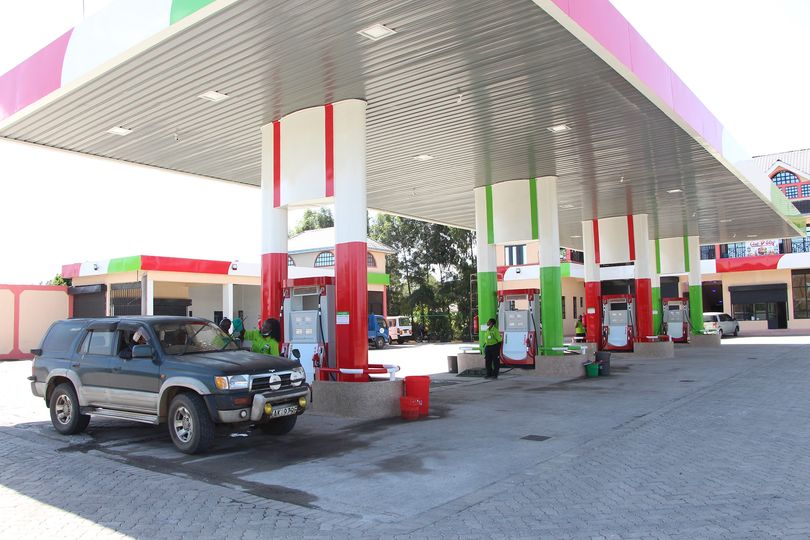- Kenya’s parastatal set for privatisation, the National Oil Corporation of Kenya could face closure if the government does not inject new funding or get investors fast.
- The Corporation’s strategic plan expired in 2020, and Management has yet to develop another strategic plan to cover the current period.
- The corporation’s latest audited results for June 2023 show that it is running on a negative working capital position with its current liabilities outstripping current assets.
National Oil Corporation will need to seek financial support, restructure its operations, or face bankruptcy after its debts exceed its assets by Sh9.1 billion ($70.96 million).
Kenya’s Auditor General Nancy Gathungu has warned that the firm is technically insolvent amidst the government’s push for a strategic investor to run the parastatal.
This means that the National Oil Corporation of Kenya could face closure if the government does not inject new funding or get investors fast.
The corporation’s latest audited results for June 2023 show that it is running on a negative working capital position with its current liabilities outstripping current assets. The Corporation reported a loss of Sh2.34 billion for the year, up from Sh1.50 billion the previous year.
This increased its accumulated losses to Sh6.84 billion ($ 53.3 million) from Sh5.17 billion ($40.3 million) in 2022. Additionally, the Corporation’s current liabilities of Sh11.46 billion ($89.4 million) exceeded its current assets of Sh2.34 billion ($ 18.2 million) by Sh9.1 billion ($70.96 million).
Read Also: Africa Agri Expo attracts 100 investors, $25Mn expected in deals
Kenya’s Parastatal Set for Privatisation
The auditor says that her review of records revealed that NOCK management also failed to meet the minimum operational stocks of petroleum.
“The Corporation is technically insolvent, and its survival depends on improved performance and reduced reliance on financial support,” Gathungu said.
Moreover, the Corporation failed to disclose this uncertainty and any measures to address it in the financial statement notes, as required by International Accounting Standards.
A further review of documents by Gathungu revealed that the Corporation’s strategic plan expired in the year 2020 and Management was yet to develop another strategic plan to cover the current period.
“Therefore, achievement of the Corporation’s strategic goal may not be possible. Management had indicated that the strategic plan is a draft form. In the circumstances, the effectiveness and direction of the Corporations’ strategy could not be confirmed,” warned Gathungu.
Among the issues, the Auditor is raising is an unsupported decline in the value of freehold land held by the corporations, which put an estimated Sh5.4 billion used into question.
According to the Auditor, the decline was not supported or justified since it did not result from a change in sizes from the alienation of the parcels or any other adverse conditions. The corporation attributed the decline to premiums paid on the acquisition of the parcels.
However, the reason could not be justified by the prevailing market conditions and differences in land measurements cited in the valuation reports and those in the title deeds.
“In the circumstances, the accuracy and valuation of property, plant, and equipment balance of Sh5.41 billion ($ 42.2 million) could not be confirmed,” said Gathungu.
The auditor also put into question the accuracy of the deferred income balance of Sh3.1 billion (Sh24.1 million). Gathungu said that over the years, the corporation spent Sh2.2 billion (Sh17.2 million) on capital expenditures for Exploration Expenditure-Block 14T.
However, this amount was not deducted from the deferred income, causing the reported deferred income of Sh3.13 billion (Sh24.1 million) to be overstated by Sh2,209,278,000 (Sh17.2 million).
In a twist of events however, The Corporation continued to hold funds for projects that were yet to be implemented or surplus funds for completed ones in its books, thereby denying citizens access to services intended or additional services that can be implemented using the idle funds.
This has seen the accuracy, and completeness of the special fund’s project balance of Sh3.68 billion ($28.7million) that could not be confirmed.
Kenya’s President William Ruto has last year announced a plan to privatise 35 state companies and was looking at a further 100 firms after enacting a revised law to cut down on bureaucracy.
Read Also: Kenya’s business climate named among the best in 2024
